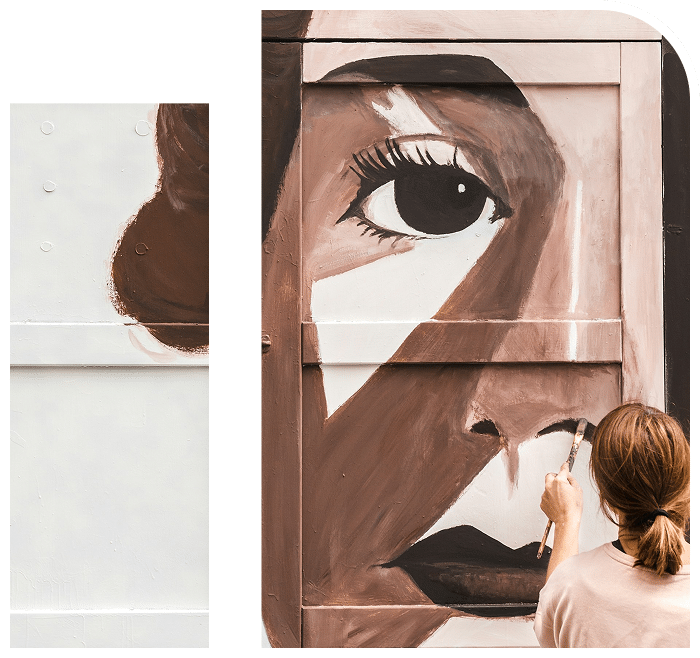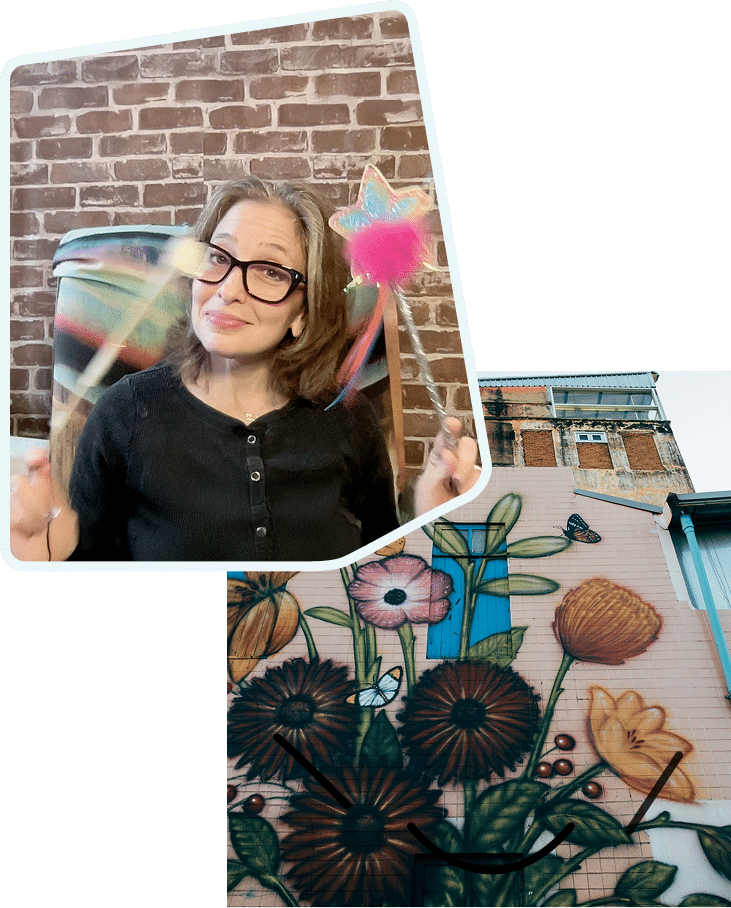
I offer online therapy for overwhelmed adults ready to let go of shame and treat themselves with compassion, including those navigating complex mental health, substance use, neurodivergence, or 2e parenting.
Have you tried self-help books, scented candles, and mental health TikTok to deal with the challenges of your complicated life, but still somehow feel like crap? Maybe you’ve:
There’s a lot of not-so-helpful “help” out there.
I’ve experienced some myself. So if you’re ready to throw up your hands and turn to Dr. Google or a magic wand, I get it.

Yes, I really do have TWO magic wands. I’ll wave them around if you want, but they’re mostly for dramatic effect. Because what helps more is real talk. Human connection. Being seen and accepted as a full human with a complicated life.
I also have a full (metaphorical) toolbox.
I pull from lots of techniques. We’ll mix and match based on what actually helps you. We’ll work together and find what fits.

We move at your speed, on your terms. Some sessions start with “I don’t know what to talk about” and end somewhere surprisingly useful. Some are mostly venting. Some are quiet. Some involve lots of laughing.
You’ll get an active therapist who engages with any and all of it.
I offer perspective and curiosity, not just “uh-huhs.” After 25 years, I’ve probably heard it all (and worse).

It Is:
It Isn’t:
This can include:
Or we can just talk.
No pressure. You just need to show up.
Hi, I’m Emy Zener (she/her). I’ve been doing this therapy thing for almost 25 years, 18 of which were in community mental health and substance use programs. I know most people don’t need “fixing.” They need space to fully be themselves.
Before that? I acted, sang, and danced (so I know all kinds of drama). I’m also the mom of a successfully grown-and-flown, twice-exceptional neurodivergent kid.
Why I do this work
I’ve lived a full, real, deeply human life. I’ve learned in some hard ways that perfectionism isn’t living and that shame isn’t a reliable narrator.
Now I use those lessons to help others, especially those carrying shame around identity, mental health, substance use, parenting, or that thing they swore they’d never say out loud.

I’ve studied theatre intensively, got a BA in Women’s Studies (a field now known as “Gender Studies”) at Wesleyan, and earned my MSW from NYU. I’ve trained in IFS, trauma, harm reduction, neurodivergence, and substance use. I’ve worked in substance use programs, outpatient clinics, and an LGBTQ+ health center. And I teach graduate students at Silberman School of Social Work at Hunter College.
So yes, I speak fluent chaos.
I now support adults navigating addiction, complex mental health, and the joys and landmines of raising neurodivergent kids while managing their own complicated selves.
This exercise is simple, uncomfortable, and kind of magic. It helps bring shame out of hiding in order to loosen its grip. Like turning on the light in a room you thought had a monster in it.
All you need to do is say the scary thought out loud once, so it stops running the show in secret.
Here’s how it works
Choose one sentence you never say out loud.
Examples:
Say it out loud with “I think” at the beginning. Try it in the mirror, in the shower, on a walk. Notice your body: clenched stomach? Numb? Butterflies?
“…and that doesn’t mean I’m a bad person.” Or: “…and I’m still worthy of love.” You don’t have to believe it yet. Just try.

Book A Consult